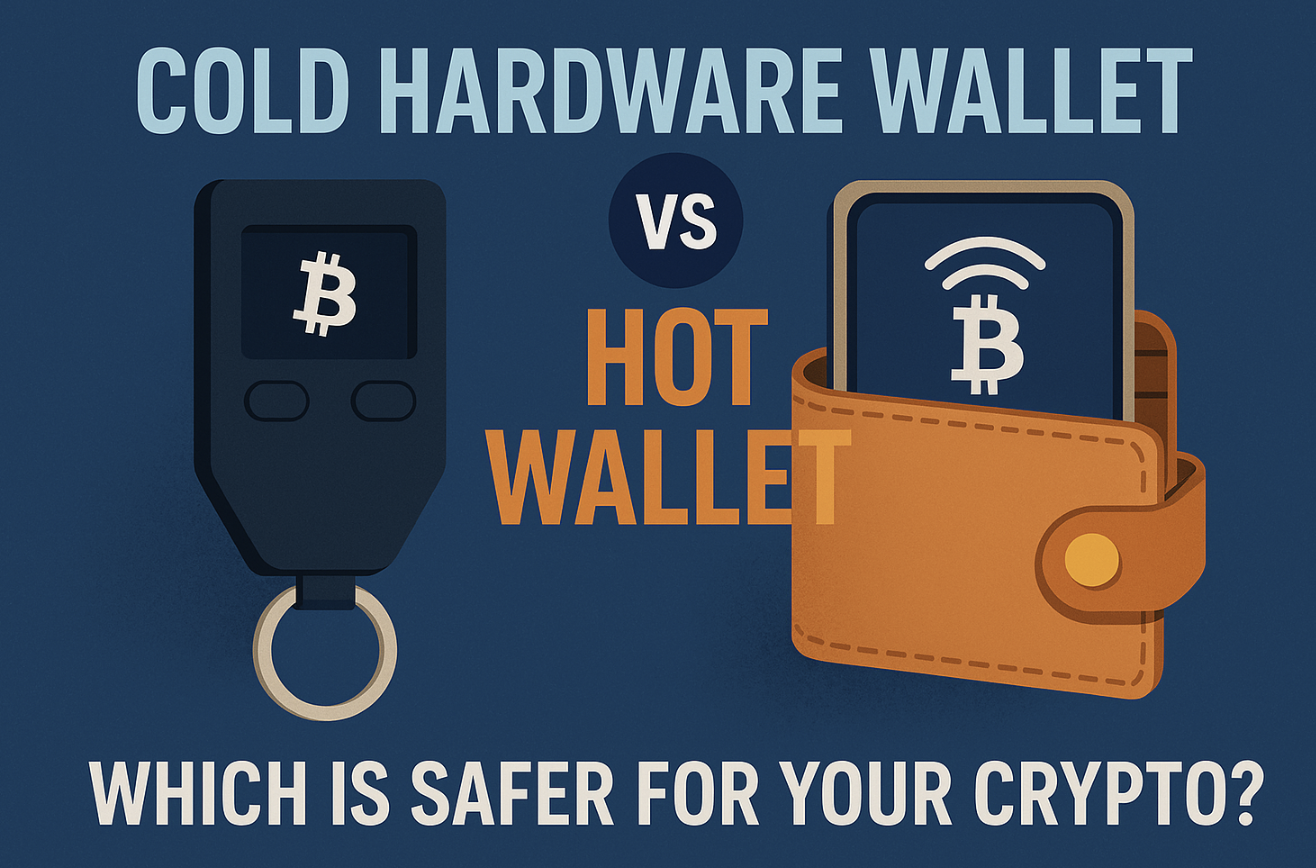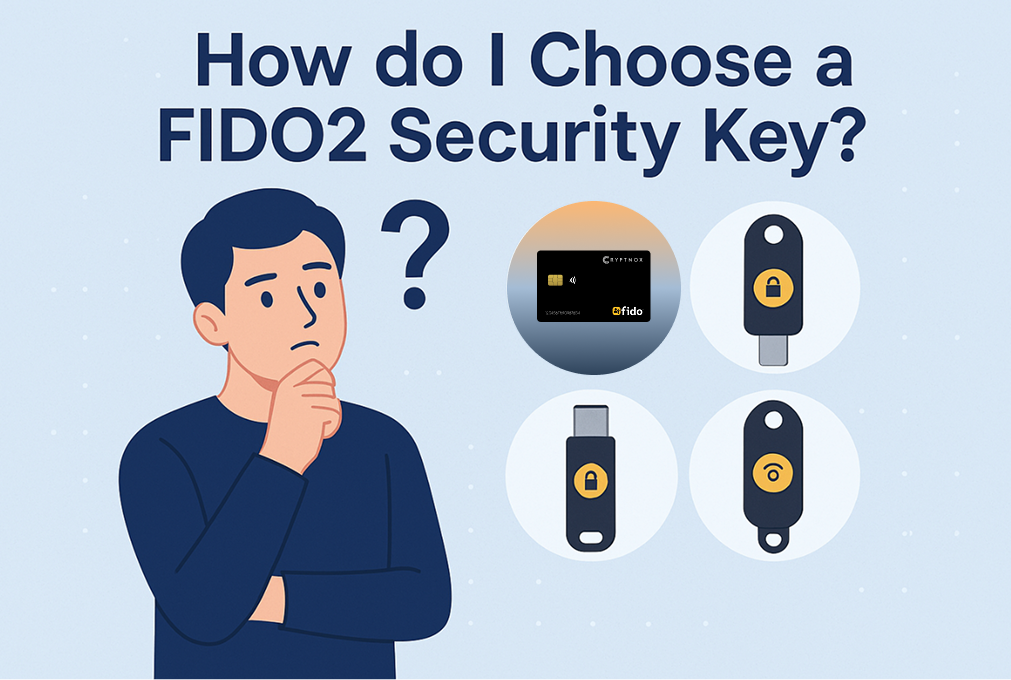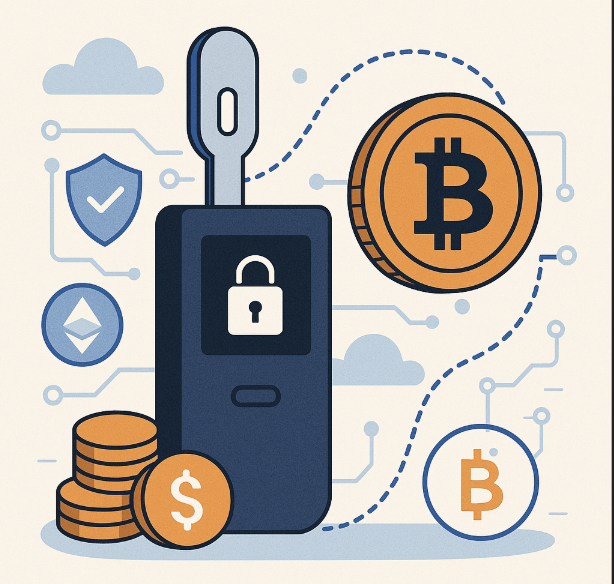With hackers stealing billions of dollars in crypto assets annually, choosing the right wallet is a critical decision for any investor. The two main types of wallets are hot wallets and cold wallets. Each has its own set of advantages and disadvantages, depending on your needs and risk tolerance.
When selecting a hardware wallet, it’s essential to consider how you plan to manage your cryptocurrency transactions. For instance, if you frequently transfer cryptocurrency, a hot wallet might be more suitable due to its ease of use. However, for long-term storage and enhanced security, crypto hardware wallets are the preferred choice. Additionally, advanced security features such as resistance to nonce attacks can provide extra peace of mind for investors looking to safeguard their assets effectively.
Ready to secure your cryptocurrency with a reliable solution? Explore our offerings at Cryptnox to find the perfect fit for your crypto storage needs. Whether you’re a seasoned investor or just starting out, we’ve got solutions designed to keep your assets safe and accessible.
What Are Hot and Cold Wallets?
- Hot Wallets: These are connected to the internet, making them convenient for frequent transactions but vulnerable to cyber threats.
- Cold Wallets: They store private keys offline, offering superior security but requiring extra steps to access funds.
Understanding Hot Wallets
Hot wallets are perfect for active traders or those who need quick access to their cryptocurrencies. They are typically available as mobile apps, desktop programs, or web platforms, making them highly accessible and user-friendly.
Pros of Hot Wallets
- Convenience: Instant access to funds for trading or transactions.
- User-Friendly: Easy to set up and use.
- Free/Low Cost: Often free or low-cost to use.
- Integration with DeFi & Web3 Apps: Direct interaction with platforms like Uniswap and OpenSea.
Cons of Hot Wallets
- Security Risks: Susceptible to hacking, phishing, and malware.
- Internet Dependency: Always online, increasing exposure to cyber threats.
Understanding Cold Wallets
Cold wallets, on the other hand, are designed for long-term storage and security. They keep your private keys offline, protecting them from online threats.
Pros of Cold Wallets
- Superior Security: Offline storage eliminates hacking risks.
- Ideal for Long-Term Investors: Perfect for holding assets safely over time.
- Full Control: You have complete ownership and control over your private keys.
Cons of Cold Wallets
- Less Convenient: Requires extra steps to access funds.
- Initial Cost: Hardware wallets require an upfront investment.
- Potential Loss of Access: If lost, recovery can be challenging.
Types of Cold Wallets
Cold wallets come in various forms, each with its unique features:
- Hardware Wallets: Devices like flash drives or credit cards that store keys securely. Examples include Ledger and Trezor models.
- Air-Gapped Devices: Never connect to the internet; transactions are initiated online and verified offline using QR codes or flash drives.
- Paper Wallets: Low-tech and low-security; private keys are written on paper.
Security Best Practices for Crypto Wallets
To enhance security, consider these best practices:
- Use Anti-Malware Measures: Protect your devices from malware to prevent keylogging and clipboard hijacking.
- Implement Two-Factor Authentication: Add an extra layer of security to your wallets.
- Keep Recovery Phrases Secure: Store multiple copies in safe locations.
Choosing Between Hot and Cold Wallets
Your choice between a hot wallet and a cold wallet depends on your needs:
- Active Traders: Hot wallets are ideal for frequent transactions.
- Long-Term Investors: Cold wallets provide superior security for storing large amounts of cryptocurrency.
Hot Wallets vs. Cold Wallets
Feature | Hot Wallets | Cold Wallets |
Security | Vulnerable to cyber threats | Highly secure, offline storage |
Convenience | Instant access, user-friendly | Less convenient, extra steps required |
Cost | Often free or low-cost | Initial hardware cost |
Use Case | Frequent transactions, active trading | Long-term storage, security-focused |
Discover Us – CRYPTNOX
Cryptnox specializes in advanced smart card technology for blockchain applications, focusing on secure authentication and digital asset management. Their solutions cater to both consumers and businesses, offering a seamless and user-friendly experience.
Key Features and Products
–FIDO2 Smartcard: Offers secure single- or two-factor authentication with FIDO2 Level 1 certification, ideal for personal and enterprise use. It supports passwordless authentication and is compatible with various platforms like Gmail, Facebook, and more.
–Hardware Wallet: Provides secure crypto storage with a dual-card backup system, biometric authentication, and seamless Web3 integration. It supports multiple blockchain networks, including Ethereum and Bitcoin.
–For Business: Cryptnox offers White Label Crypto cards specifically designed for banks, fintech companies, and financial institutions. These customizable hardware wallet cards enable secure and user-friendly cryptocurrency management while providing full regulatory control, allowing institutions to maintain compliance and oversight over their crypto services.
Innovations and Certifications:
– Cryptnox is a member of the FIDO Alliance and their products are based on chips with certifications such as EAL6+ Common Criteria and FIPS 140-2 Level 3, ensuring high-security standards.
– Their solutions are designed for simplicity and user experience, with ongoing research into blockchain card dematerialization.
Target Audience:
Cryptnox products are designed for both individual consumers seeking secure crypto management and businesses like fintech firms and banks looking to integrate advanced security solutions into their payment ecosystems.
Cold hardware wallets offer unparalleled security for long-term storage, while hot wallets provide ease of use for frequent transactions. Understanding your needs and risk tolerance is key to choosing the right wallet for your digital assets.





